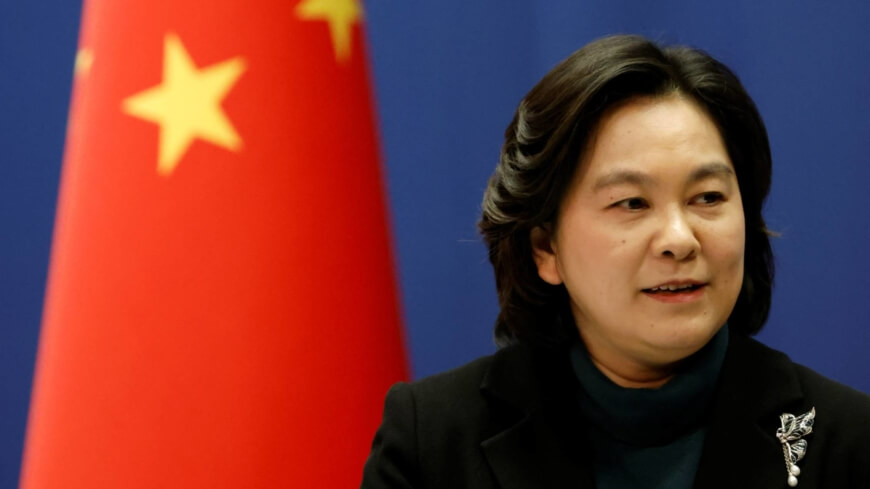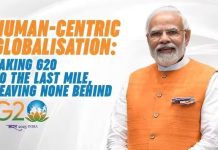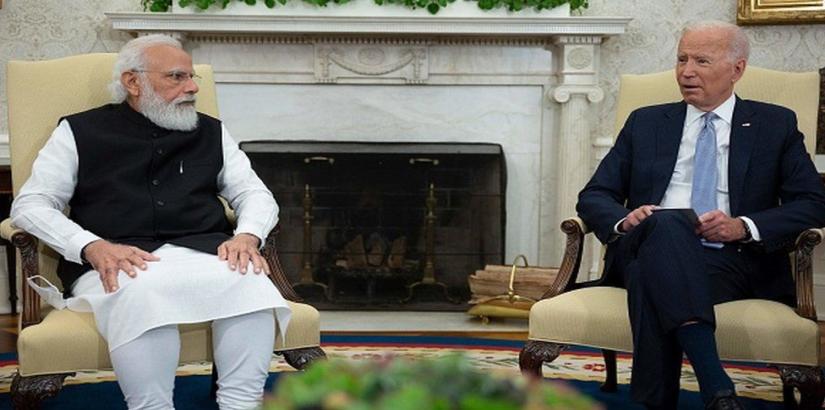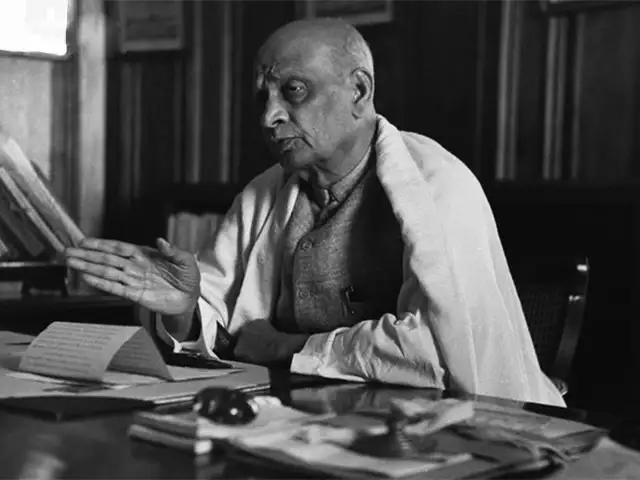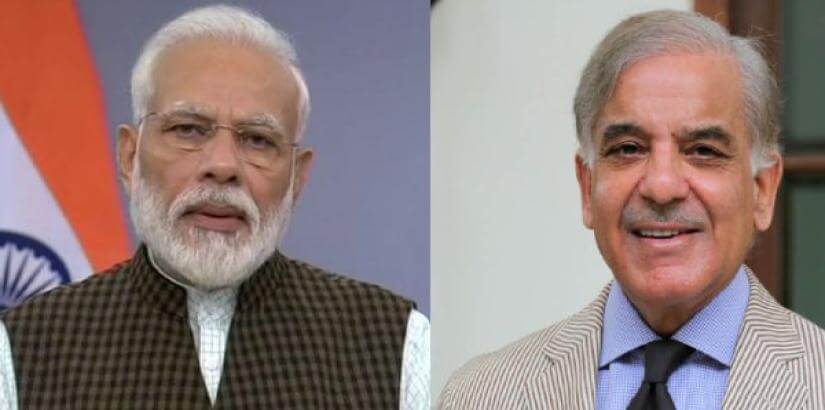HONG KONG: In one fell swoop, Russian President Vladimir Putin’s invasion of Ukraine has forced a momentous change in thinking for Western leaders and strategists. Putin’s willingness to go to war demonstrates how other authoritarian leaders – like Xi Jinping in China – could also act in ways the West finds irrational and unexpected.
The consensus has been that China would not really invade Taiwan, that such a gamble would cost China too much militarily, economically and diplomatically. However, the calculus has now changed, for Xi is cut from the same cloth as Putin.
The bloody invasion of Ukraine – a democratic nation assaulted by an authoritarian state – must cause a reevaluation of assumptions about the risk appetite in both Russia and China. This soul-searching should have far-reaching implications for not only Europe and the USA, but for Asia too.’
Putin’s war has shattered the illusion of countries like Germany, forcing a profound rethink. The same needs to happen in Asia vis-a-vis China, but it is likely that too many will pay little heed to this lesson.
Xi and Putin have overseen strengthening bilateral ties, underscored when Putin met Xi during the Winter Olympics on February 5. The timing of Putin’s invasion, just four days after the Olympics concluded, perhaps indicates some degree of collusion.
It is impossible to know what was discussed at their meeting, but surely a potential war against Ukraine was high on the agenda. The two countries released an unprecedented joint statement where China expressed “sympathy” and “support” for Russian demands for “binding security guarantees in Europe”.
Some analysts draw a direct link. Angela Stent, a Russian specialist at Georgetown University, told the Center for Strategic and International Studies: “I want to underline that Vladimir Putin would not have embarked on this aggression against Ukraine at this time if he didn’t know that he would have Chinese support. It’s not the reason he’s done it, but I agree it’s the timing and the fact that he knew that whatever happened the Chinese would be there for him.”
Russia invaded Georgia just one week before the Beijing Olympics in 2008, but now, as the two strongmen practice mutual support, Putin waited till a week after the Winter Olympics before attacking Ukraine.
Indeed, Stent noted: “Now that relationship…is much stronger … We have a different Chinese leader. We’re in a different world now. And so I think this is an essential backdrop for understanding what Putin is doing.”
Patricia M. Kim, a Fellow at the Center for East Asia Policy Studies of the Brookings Institution, commented: “Beijing has made a grave strategic miscalculation in aligning closely with Moscow at a time when states around the world are unequivocally condemning the Russian invasion of Ukraine.”
A senior official in the White House revealed, “The US in December 2021 warned China in a a diplomatic exchange that Russia was preparing to attack Ukraine. Our information indicates that China then relayed that information to Russia, noting that the US was attempting to sow the division between China and Russia, and that China would not try to dissuade Russia from invading.”
If Putin did tell Xi of his plans at their Beijing meeting, then China helped establish a smokescreen. If Putin did not, then this suggests the USA is more trustworthy than Russia, an intolerable proposition for the Chinese Communist Party (CCP). It is in Chinese leaders’ DNA to mistrust the USA, seeing the “rules-based international order” as an excuse for American hegemony.
Both Putin and Xi see each other as an ally in pushing back against the West, and neither will do anything to weaken the domestic position of the other. In common, they have perceived outstanding grievances and are seeking to reorder the global political landscape.
On February 25, China, along with India and the UAE, abstained from an attempted United Nations Security Council (UNSC) vote denouncing Russia’s invasion of Ukraine. Ian Easton of the Project 2049 Institute warned, “Let the record show, and let it not be forgotten, that China did not join the United Nations’ anti-war, pro-Ukraine vote. Xi Jinping is supporting his comrade Vladimir Putin. They are radical Marxists, allied in their campaign to destroy the liberal world order and democracy.”
While this may be true, China’s abstention rather than a “no” vote showed that it would not publicly give full support either. In fact, Beijing is in some degree of discomfiture, since this is a matter unrelated to China’s core interests. There is little to win, much to lose, so China is somewhat risk averse.
Stent acknowledged: “I do believe that the Chinese do not approve of this specter of the violation of another country’s territorial integrity and sovereignty. But, as everyone has said, they’re still of course supporting Russia and blaming NATO and the United States for this crisis. So their talking points there are almost identical to the official Russian talking points.”
She further noted: “China will have to very carefully balance its support for Russia with not trying to jeopardize its own economic interests with the West. And it will help Russia, to some extent, get sanctions relief. But, again, this is going to be tricky. And particularly if the Russians go further and the military conflict extends in Ukraine, and there are the massive sanctions that are being threatened by the United States and the European Union.”
Beijing will want the war settled as quickly as possible, especially if it is not humiliating for Moscow and permits Beijing to keep its hands relatively clean. But nor does it want to see NATO and the US emboldened because China feels it is still top of the US hit list. That is why we see China prevaricating, walking a tightrope in areas which it has little experience.
Two Chinese state banks will now restrict Russian commodity purchases, perhaps a subtle hint of an adapting Chinese stance.
Chinese Foreign Minister Wang Yi, in a phone call with British and French counterparts on February 25, outlined five Chinese positions, the first being that “the sovereignty and the territorial integrity of all countries should be respected and protected” in the “Ukraine issue” (China can still not bear to call it an invasion).
Wang’s second point was that “the security of one country should not come at the expense of the security of other countries,” and he warned off expanding military blocs. This is a return to the old Chinese canard of “discarding the Cold War mentality”. Beijing continually blames the USA and NATO, rather than Russia, for this war.
Thirdly, Wang encouraged all parties to “exercise the necessary restraint,” ignoring the fact that Russia is the aggressor and therefore needs to withdraw. Fourthly, Wang welcomed diplomatic efforts and direct dialogue. Finally, he said the UNSC “should play a constructive role,” even after China abstained from the vote to censure Russia.
One wonders whether Putin’s order to put his nuclear forces on a war footing took China by surprise. Protecting a small renegade like North Korea is one thing for China, but is Xi willing to pay an economic and public-opinion price for maintaining solidarity with Putin?
Social media posts in China include some pro-Ukraine and pro-peace sentiments, but these are mostly represented by thumbs-up emoji rather than verbal displays of support. One such comment was, “One can be indifferent to wars, but should at the very least not advocate wars, or worse, praise invaders.” This rather bland protest invited intense criticism, where one netizen said, “With what kind of state of mind did you write this piece?”
Later, four Chinese professors aired a petition backing the Ukrainian people and calling for Russia to stop. Censors promptly deleted it. Unfortunately, peaceable posts are overwhelmed by hawkish pro-Russian and anti-USA posts on the Chinese internet.
By one observer’s reckoning, about 90 per cent of social media posts are pro-Russia. This simply reflects CCP propaganda, which promotes the Sino-Russian partnership and demonizes the USA. Ultimately, the Chinese government controls the internet so, by allowing such messaging, it continues to stoke the flames of nationalism.
Adam Ni, a China watcher, commented: “Many Chinese nationalists are sympathetic to Putin’s actions. They reflect on these actions through the lens of modern China’s national humiliation. In their view, Russia was pushed to the wall by the West, and now it’s standing up for itself in the same way that China needs to.”
Fears are rising that, if Russia is willing to risk international opprobrium by invading Ukraine, then China could one day do precisely the same to Taiwan. Indeed, 77 per cent of respondents in a Nikkei and TV Tokyo survey in Japan fear there could be a spillover in Taiwan.
Taiwan has rejected this “today Ukraine, tomorrow Taiwan” narrative, with its defence minister saying the two are not comparable.
While it is true there is no direct link between a Russian attack on Ukraine and a Chinese one on Taiwan, Putin has nonetheless delivered a chilling reminder of a new geopolitical reality, that autocrats are willing to go to war to address their grievances. Putin has stunningly reversed the “peace dividend” after the Cold War ended, but Beijing continues to peddle the fiction that only the USA and NATO harbour a “Cold War mentality”.
There are similarities though. Taiwan and Ukraine are both democratic nations unfortunately positioned next door to nuclear-armed bullies with recidivist territorial ambitions. Russia and China have both threatened their smaller neighbours for years.
Easton of the Project 2049 Institute again: “We should not downplay the threat facing Taiwan in the wake of Putin’s invasion of Ukraine. It’s very real and growing. Key assumptions our leaders made about deterrence and war prevention have been falsified by events. The invasion of Ukraine should be a wake-up call for us all.”
China, not Russia, has been named as the most serious long-term geopolitical challenge for the USA. Furthermore, Taiwan is the USA ninth-largest trading partner (compared to 67th for Ukraine), with the crown jewel being its semiconductor manufacturing. The USA signed the Taiwan Relations Act, but it only commits Washington DC to providing defensive arms rather than promising to come to its aid during a conflict. Nonetheless, President Joe Biden did confirm last year that the USA would defend Taiwan.
The USA and allies repeatedly emphasize the importance of respecting international rules and norms in places like the South China Sea. But at a stroke, Putin has shown what he thinks of such rules. China is no different, demonstrably proving disdain again and again for the rule of law in the South China Sea and elsewhere.
Why would Beijing treat Taiwan any different to the South China Sea, according to this mindset? China has convinced itself that Taiwan is its problem-child province, and not the democratically ruled nation that it actually is. China at least recognized Ukraine as a sovereign nation, something it does not do with Taiwan. There is thus a danger that China will act aggressively.
Xi and Putin are far removed from the man on the street, surrounded by sycophants who only say what their leaders want to hear. Most CCP leaders have minimal contact with the rest of the world, and few speak a second language. They are insular and isolated, and most have no idea what the average Taiwanese thinks of the prospect of living under Chinese jackboots.
What Russia calls “special military operations,” China would simply label “reunification”. The rest of the world would call them “invasions”. Alarmingly, Xi outdoes Putin in terms of his rhetoric for national rejuvenation and hyper-nationalism, plus he is convinced of the inevitable decline of the USA.
Whereas many Russians publicly protested Putin’s invasion of Ukraine, this would be inconceivable in China. Protestors would be swiftly rounded up by the internal security apparatus. Furthermore, there is no avenue for peaceful Chinese to vent their frustrations or disagreements online. China has one of the most tightly controlled internets in the world, and any divergence from the party line is swiftly deleted and punished.
Putin thrives on disorder and chaos, whereas China prefers greater predictability. Xi is not the risk-taker that Putin is, so his approach will be measured rather than foolhardy. He will ensure that the People’s Liberation Army has the weapons it needs, and that the political and propaganda foundations have been properly paid.
At this time, China will be looking to take salient lessons from Russia’s military operations, though an amphibious invasion is very different to one across land borders, as in Ukraine. With Kosovo already applying to join NATO in light of Russia’s actions, ongoing aggression by China could see military build-ups among China’s rivals in the Asia-Pacific region. It could also strengthen the US leadership role, the very thing China wants to diminish.
As in Ukraine, there is every chance the Taiwan populace would rise up to fight an invading Chinese force. There would obviously be major economic punishments and sanctions against China, and it would engender almost global condemnation, as well as perhaps multinational assistance to Taiwan to help it resist. China must add this to its calculations.
Will China use the world’s preoccupation with Ukraine to foment further trouble in its neck of the woods, perhaps along the Indian border or in the South China Sea? China will surely keep the heat on Taiwan for now, and perhaps one lesson it draws from Russia’s invasion is that it must use overwhelming force against Taiwan right from the start.
Incidentally, with Russia suffering heavy equipment losses, and with some international customers perhaps dissuaded from further purchases, this conflict could prove a windfall for China’s arms industry.
Russia will be crippled with severe sanctions, and this will likely mean it cannot maintain and support Russian-sourced equipment it has sold to other nations. There are enormous opportunities here for China in terms of arms sales, which would bring recipients more fully under Beijing’s orb of influence. (ANI)
